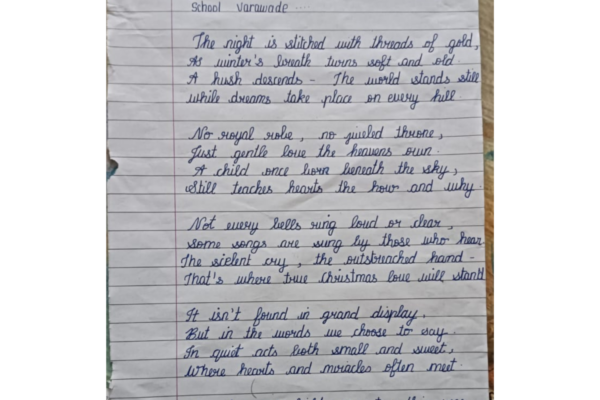
During the British rule in India, the agricultural system saw a major change followed by new rules and regulations. All of the farmers couldn’t grow crops only based on their own needs, they were now part of a bigger system. The farmers had to grow food crops along with cash crops. Cash crops were the crops which were grown for profit instead of food needs, which in turn helped the economy of the British to prosper and flourish.
Before the British rule, no such cash crops were grown. However, with the start of the reign of the Britishers in India, the farmers were forced to comply. Majority of the farmers didn’t have the resources, technology and incentive to do this. Thus, cash crops were only grown in certain areas. Indigo was an important cash crop that was grown in almost all fields, making it a major source of income for the British. This came to be known as ‘Commercialisation of Agriculture’.
The farmers had to pay rent to their respective Zamindar. The Zamindars were responsible for collecting rent from the farmers of their own village and then providing the British officer allotted to their area the requisite tax.
The farmers had to pay the required amount of rent even in the case of lower crop production, and the Zamindars had to pay the fixed amount of tax at the fixed date of tax submission to the Britishers. However, this system had some drawbacks for the farmers themselves.
In the case of lower crop production, they still had to pay full rent and were not eligible for compensation. The Zamindars didn’t undergo any suffering due to lower crop production as they were used to receiving full rent and moved on to submit full tax to the British officer. Over time, this system grew more rigid which led to the exploitation of farmers, lethargy of the Zamindars and no willingness of the Britishers to help the farmers.
During this time period, little Krishnan was born. He was born in a family of four, with Mr. Bheema as his father, Mrs. Shanti as his mother and Ganesh as his elder brother. Ganesh was about eight years old when Krishnan was born. He had a keen interest in farming and used to observe everything his father Bheema would do. He would also tell all that he knew to his little brother whenever they were together.
When Krishnan was about five years old, Mr. Bheema enrolled Krishnan to their local school for primary education. Little Krishnan was initially agitated by the idea of going to school, but he soon started liking it once he gained new friends. He went to school regularly, eager to study, expand his knowledge and also to have fun with his friends. He was an obedient and disciplined student.
One day, his class teacher walked in and said that he had to make an important announcement. Krishnan and his friends were surprised to hear that the Zamindar would be visiting their school on Wednesday! The Zamindar wanted to observe the cleanliness of the school building, the discipline and body language of the students, and the education provided by the teachers. All of the students were requested to be present with proper uniform and also to follow the rules without any indiscipline to uphold the school’s integrity and respect in the village.
Little Krishnan was both eager and tensed about this, it will be his first time interacting with the Zamindar! He immediately informed this to Shanti and Bheema as soon as he reached home as instructed by his class teacher. He couldn’t wait for this Wednesday; the excitement was too much to hold in.
The day finally arrived, the morning sky stretched wide and cloudless, like a canvas waiting for stories. As Mr. Bheema and Krishnan walked the dusty village path, Krishnan’s heart raced faster with each step. Today was of course no ordinary day—the Zamindar was visiting the school! He quickly scurried off to his classroom as he reached the school gate, taking a seat between his friends and waiting for the Zamindar’s arrival. And then there was the Zamindar, draped in white, standing just outside their classroom. The man appeared to be quite plump, his attire clinging to his body tightly, almost too tightly. His expression was unreadable and his eyebrows were frowned. He had a thick moustache which looked like it would curl upwards if he smiled, which he rarely did in front of people except for his own family.
“That is our Zamindar, Mr. Simha. I call him the frowner though.” One of Krishnan’s friends said, making all of them silently giggle. They soon noticed that Mr. Simha had bought laddus for them! Krishnan loved laddus, he would absolutely devour them if he got the chance to have them. The Zamindar entered their classroom, greeted all the children and handed laddus to every student. Even though he didn’t exactly “smile”, his eyes were warm and his expression was relaxed enough to conclude that he was pleased. The day passed swiftly, fulfilling Krishnan’s wish to see Mr. Simha from such close proximity. It was truly a day to remember!
However, this peaceful and stable life was soon met with a tragic incident which left all of Mr. Bheema’s family heartbroken and helpless- one day, just as Bheema was working in the fields, his heart thundered once and then stopped, as if Mother Nature had cradled her beloved son for the last time. His fellow farmers discovered his lifeless body, tears streaming down their cheeks once they realised- he was gone. This was unbelievable for Mrs. Shanti, how could she manage two of her sons’ educational and personal costs? The inner turmoil seemed to eat her alive, her mind a whirlwind of complex emotions which dared to destroy her true self and leave her just a shell of the woman she used to be. On the other hand, poor Krishnan was only in 3rd grade, how could he be able to understand that his father had already taken his last breath!
Even though Ganesh was older than him, he also failed to control and comfort his little brother. He was also broken on the inside because Ganesh was mature enough to realise what truly happened, and also the multiple horrors it can bring. Losing Bheema felt like the ground had shifted- like the roots that held everything steady had been torn away. Ganesh, observing the grief and the unbearable weight on his mother’s shoulders, knew he had to step up. Being the selfless boy he was, he decided that he will help his mother in handling the family. He had completed education till grade 9 and then stepped away from formal education to tend to life’s more pressing demands. He had started working with his uncle, Mr. Kaartik, helping his mother financially and also sharing the responsibilities.
Ganesh was very clear about one thing- no matter how much he’ll have to sacrifice for his own family; he’ll never make his little brother Krishnan sacrifice for something which is in his hands. He promised Krishnan that he’ll always have his back, and that Krishnan can continue his education for as long as he desired. Krishnan, motivated by his brother’s words and his immense contribution to the family, silently took an oath- he will not let Ganesh’s sacrifice go to waste. He studied with his all and also tried to help his mother and elder brother whenever possible. They soon started to recover, trying to leave past wounds behind and see them in a positive light. It was not the end it was just a new beginning.
Years passed, Ganesh and Krishnan grew into responsible adults while their mother stepped into old age. Ganesh was still occupied with the work in the fields with his uncle Kaartik, where as Krishnan had stepped feet on land beyond his own village for higher education revolving around agriculture and soil science after achieving a brilliant score in his intermediate examination.
In lecture halls, he sat quietly, unsure of the English others spoke with ease. His voice, shaped by village life, shook when he had to speak. He missed home—the glow of mustard oil lamps, and the comfort of being known. In the city, he learned to hide his homesickness with quiet smiles. He ate alone. He studied late into the night while traffic hummed outside. He worked hard to shape his dreams in a language that wasn’t his own. But he didn’t give up. Slowly, he taught himself the rhythm of spoken English to bridge the gap between village soil and city classrooms, between isolation and connection. Over time, the loneliness began to soften. He started forming quiet bonds—over shared notes, late-night study sessions, and hesitant conversations that slowly grew into trust. The once unfamiliar corridors of higher education began to feel less like battlegrounds and more like bridges. As he gained new connections, his previously colourless university life was now filled with vibrance and joy.
After completing his higher studies, he returned to his former village with a new mission- to turn the uncultivable land into a cultivable one. Once he returned, his family was overjoyed to see him back- he was healthy, looked bright and ready to live life again. He came to realise that the cultivation of Indigo had decreased significantly, and that the British didn’t force the farmers to comply anymore.
With curiosity and a sharp mind, he began to observe. At dawn, he walked through the field, where dew still rested on fading leaves. He touched the soil and felt how dry and tired it had become. Utilising his knowledge from both textbooks and personal connections, his mind slowly started to work on the puzzle. The pieces slowly clicked into place- it was the Indigo cultivation which had sucked all the nutrition out of the poor soil. Indigo needed far more from the soil than any crop the villagers had ever grown. It drained the land quickly, leaving it weak and dry. But the British were far too blind in their greed for economic growth to ever notice that on their own. They kept forcing the farmers to grow indigo, season after season, chasing profit while the land slowly died. There was no time to let the soil rest, no chance to grow other crops. But now that the British didn’t force them to grow it anymore, the land could breathe again- it could arise with all its might again.
He had learned to listen—not just to books, but to the land itself. First, he let the field rest. No plough, no seed—just time. He watched the wind move across the empty furrows, believing that even silence could be healing. Then came the legumes. Moong and urad, humble crops that asked little and gave much. He planted them not for profit, but for the soil’s breath. Their roots whispered nitrogen back into the earth. He gathered compost—cow dung, kitchen scraps, fallen leaves; and fed it to the land like medicine. Slowly, the soil began to darken, to hold moisture again. Earthworms returned, quiet and purposeful. “Mitti bhi zakhm leti hain.” Is what the elders said, silently waiting for the revival of fertility in full-swing, also encouraging Krishnan to keep waiting with them. Slowly, the land began to heal. The soil grew darker, softer. Tiny sprouts pushed through, and the air smelled of rain again. The cracks in the ground started to fade. Krishnan watched with quiet joy. Each green shoot felt like a thank you; proof that his care, his patience, had worked. He stood at the edge of the field, barefoot, feeling the cool soil under his feet. He looked up at the sky—vast and quiet—the same sky his father had once worked beneath. He didn’t speak, but in his heart, he quietly thanked his late father for his blessings. The land became cultivable again, solving a major problem and helping them gather their own food needs by themselves once again. They returned to being the family there were, they are now and they always will be- happy and joyful.
September, 2025































